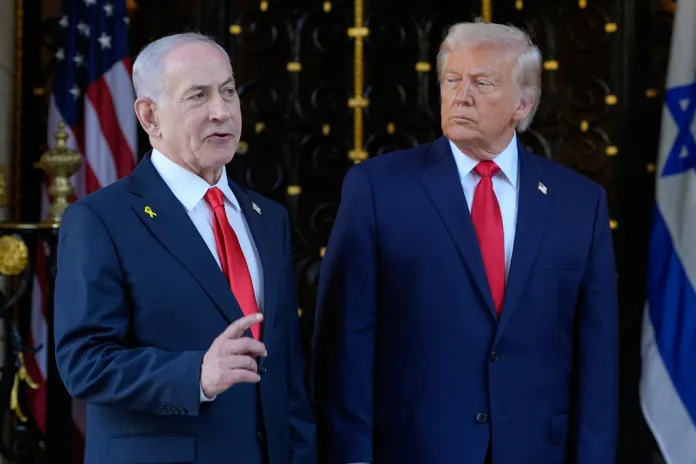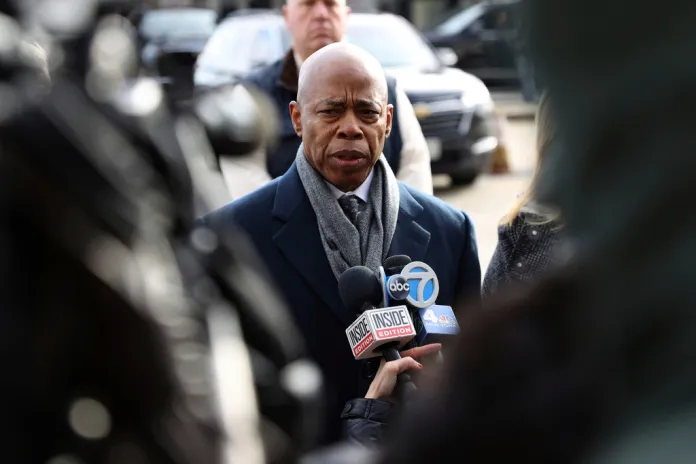Iran signals willingness to negotiate nuclear program in talks with UN – Washington Examiner
The article discusses Iran’s recent shift towards a more cooperative stance regarding its nuclear program amid concerns over a potential return of Donald Trump to the presidency, which could bring about renewed sanctions. Following a meeting in Tehran between Iranian President Masoud Pezeshkian and the International Atomic Energy Agency Director General Rafael Grossi, Iran expressed willingness to clarify its compliance with international nuclear safeguards. This move suggests Iran is eager to negotiate terms that would allow them to maintain their nuclear program without escalating military capabilities, especially before a possible Trump re-election, which may reinstate stringent pressures on the country.
During discussions, Pezeshkian assured Grossi of Iran’s “goodwill” and readiness to resolve any uncertainties surrounding its nuclear activities. Iranian Foreign Minister Seyed Abbas Araghchi also affirmed Iran’s commitment to the Treaty on the Non-Proliferation of Nuclear Weapons and emphasized the importance of dialogue and cooperation. While both officials avoided directly confronting the looming threat of U.S. sanctions, they indicated that the next steps depended on the European Union’s response. The background includes a brief overview of the Iran nuclear agreement of 2015, which aimed to limit Iran’s nuclear ambitions in exchange for relief from international sanctions, and how Trump’s withdrawal from that deal and the reinstatement of sanctions led Iran to enrich uranium to near weapons-grade levels.
Iran signals willingness to negotiate nuclear program safeguards following Trump reelection
Iran is adopting a friendlier tone with European leaders regarding the future of its nuclear program as the threat of “maximum pressure” from a second Trump administration looms on the horizon.
International Atomic Energy Agency Director Gen. Rafael Grossi met with Iranian President Masoud Pezeshkian and other high-ranking officials in the capital city of Tehran on Thursday, seeking a framework that would allow the nation to continue its nuclear program without furthering its weapons capabilities.
Pezeshkian told Grossi he is willing to address “ambiguities and doubts” about the compliance of its nuclear technology with international safeguards.
It may be the Islamic Republic’s last chance to strike a deal before President-elect Donald Trump takes back the White House and brings back crippling sanctions implemented in his first term.
“As we have repeatedly proven our goodwill, we announce our readiness to cooperate and converge with this international organization to resolve the alleged ambiguities and doubts about the peaceful nuclear activity of our country,” Pezeshkian said of the talks with Grossi.
Iranian Foreign Minister Seyed Abbas Araghchi also spoke with the United Nations’s nuclear chief, promising to “continue our full cooperation with the IAEA” in adhering to the Treaty on the Non-Proliferation of Nuclear Weapons.
“Differences can be resolved through cooperation and dialogue,” Araghchi said on social media after the meeting. “We agreed to proceed with courage and good will. Iran has never left the negotiation table on its peaceful nuclear program.”
Pezeshkian and Araghchi avoided explicitly stating concerns about the pressure the United States is likely to apply in the next four years — a posture the nation has kept since the results of the presidential election.
“To us it does not matter at all who has won the American election, because our country and system relies on its inner strength,” Pezeshkian said a week ago, according to the state-affiliated outlet IRNA.
The foreign minister stated Thursday that “the ball is in the EU/E3 court,” referring to the “EU three” diplomatic alliance of France, Germany, and the United Kingdom.
These nations, joined by the U.S., China, and Russia, spearheaded the negotiations that ultimately created the Iran nuclear deal in 2015.
The deal lifted sanctions on Iran in exchange for assurances that its nuclear program would remain exclusively aimed at peaceful energy production and not seek to enrich uranium to the levels necessary for the production of nuclear weapons.
Trump pulled out of the Iran deal in his first term, calling it “one of the worst and most one-sided transactions the United States has ever entered into.”
The administration accused Iran of acting in bad faith, exploiting the financial benefits of the agreement without seriously working to wind down its nuclear weapons capabilities.
Trump then reimposed harsh sanctions on Iran, aiming to “cut off revenues the regime uses to bankroll terrorist groups, foment global instability, fund nuclear and ballistic missile programs, and enrich its leaders” — a policy change referred to as the “maximum pressure” campaign.
The move elicited an immediate pivot from the regime, which has continued to enrich uranium to nearly weapons-grade levels, according to international watchdogs.
As Trump prepares to return to the White House in January, policy experts say he will likely resurrect the maximum pressure campaign, a move that could critically weaken Iranian diplomacy and economic power.
Araghchi warned Thursday that Iran is “willing to negotiate based on our national interest and our inalienable rights, but NOT ready to negotiate under pressure and intimidation.”
Grossi is slated to visit uranium enrichment facilities Friday in order to get a “full picture” of Iranian nuclear advancement.
“Tomorrow will be a very important step in my visit this time since I am going to be visiting important facilities in Fordo and Natanz, which are also going to help me in having a full picture of the evolution of the program,” the nuclear chief said at a press conference, according to Agence France-Presse.
Grossi has warned escalating tensions between Iran and Western nations are rapidly closing the window for a mutually acceptable arrangement.
" Conservative News Daily does not always share or support the views and opinions expressed here; they are just those of the writer."




